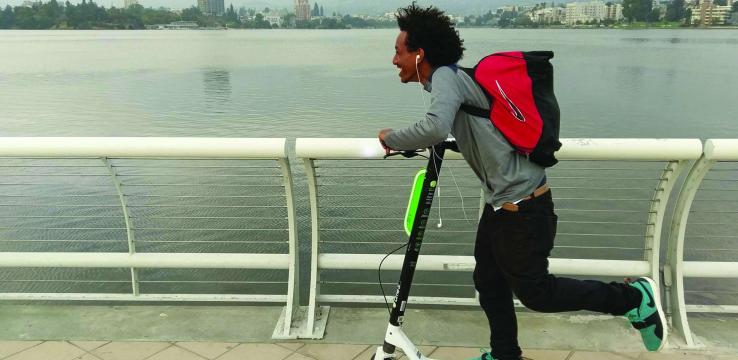When electric scooters appeared en masse on city streets this year, they quickly became a popular way to zip around — as well as a challenge for local governments. Scooters raised the ire of many residents of the Bay Area who lamented their sidewalk-obstructing tendencies. They were quickly branded a safety hazard and a threat to parking spots everywhere. City governments acted quickly to manage the little vehicles, settling on permitting processes that, among other parameters, emphasized the equitable distribution of scooters and mandated various mechanisms to keep them upright and out of the way of pedestrians.
Today in the Bay Area, people are scooting everywhere. Early evidence suggests that scooters are replacing car trips, a win for reducing congestion and air pollution (though the impact of rain and other inclement weather may impact that data). Scooters are also being used to reach transit stations, helping to bridge the perpetual first/last mile gap.
The scooter revolution did reveal that city streets aren’t exactly scooter friendly. Where, exactly, should one scoot? Scooters are forcing cities to contemplate how they allocate street space, the overwhelming majority of which is reserved for cars, and to consider how to create greater flexibility in the public transportation system as a whole. Scooters could be absorbed into the existing infrastructure, or we could build infrastructure that allows them — and bikes, and whatever the next thing may be — to be truly safe and useful transportation modes, bonafide tools for relieving congestion and reducing carbon emissions.
Scooters won’t solve the massive challenge of transportation in cities but they can help. But their broad constituency, combined with the scooter companies’ offers to help fund the development of scooter-friendly transportation infrastructure, may very help mark the dawn of a micro-mobility revolution that might just take off in 2019.

